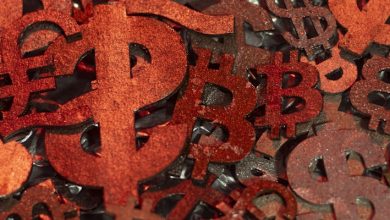The Importance of Governance Tokens in Decentralized Systems

- Understanding Governance Tokens and their role in decentralized systems
- The power of Governance Tokens in shaping the future of decentralized platforms
- Why Governance Tokens are crucial for decision-making in decentralized ecosystems
- Exploring the benefits of using Governance Tokens in decentralized systems
- The significance of Governance Tokens in promoting community involvement and consensus
- How Governance Tokens ensure transparency and accountability in decentralized governance
Understanding Governance Tokens and their role in decentralized systems
Governance tokens play a crucial role in decentralized systems by enabling token holders to participate in decision-making processes. These tokens grant holders the right to vote on proposals that can impact the future of the system. By holding governance tokens, users can have a say in protocol upgrades, changes to parameters, and other important decisions that affect the ecosystem.
Additionally, governance tokens can be used to delegate voting power to other users or groups, allowing for more efficient decision-making processes. This delegation mechanism helps ensure that decisions are made by those with the most expertise or stake in the system.
Furthermore, governance tokens can also be used to incentivize active participation in the governance process. By rewarding users for voting and engaging with proposals, projects can increase voter turnout and ensure that a diverse range of voices are heard.
Overall, governance tokens are a vital component of decentralized systems as they empower users to govern the platforms they are a part of. Through voting, delegation, and incentives, governance tokens help create a more transparent, inclusive, and decentralized decision-making process.
The power of Governance Tokens in shaping the future of decentralized platforms
Governance tokens play a crucial role in influencing the direction and decision-making process of decentralized platforms. These tokens give holders the power to vote on proposals that can impact various aspects of the platform, such as protocol upgrades, fee structures, and even the addition or removal of features. This level of community involvement and control is what sets decentralized systems apart from traditional centralized ones.
By holding governance tokens, users have a say in how the platform evolves over time, ensuring that it remains aligned with the needs and desires of its community. This democratic approach to governance fosters transparency and trust among participants, ultimately leading to a more robust and sustainable ecosystem.
Furthermore, governance tokens incentivize active participation and engagement within the platform, as users are motivated to acquire and hold tokens in order to have a voice in decision-making processes. This not only benefits the individual holders but also contributes to the overall health and growth of the decentralized system as a whole.
Why Governance Tokens are crucial for decision-making in decentralized ecosystems
Governance tokens play a vital role in decentralized ecosystems by empowering token holders to participate in decision-making processes. These tokens enable holders to propose and vote on changes or upgrades to the network, ensuring a transparent and democratic governance structure. By holding governance tokens, users can have a say in the direction and development of the decentralized system they are part of.
One of the key benefits of governance tokens is their ability to incentivize active participation from token holders. Through voting mechanisms, users are motivated to engage with the platform, leading to a more engaged and committed community. This active participation helps in ensuring that decisions are made in the best interest of the network as a whole, rather than by a select few.
Furthermore, governance tokens provide a mechanism for resolving conflicts and reaching consensus within decentralized ecosystems. By allowing token holders to vote on proposals, disagreements can be resolved in a transparent and inclusive manner. This helps in maintaining the integrity and stability of the network, fostering trust among users and stakeholders.
In conclusion, governance tokens are essential for decision-making in decentralized systems as they empower users to have a voice in the governance of the network. By incentivizing active participation, resolving conflicts, and promoting transparency, governance tokens play a crucial role in ensuring the long-term success and sustainability of decentralized ecosystems.
Exploring the benefits of using Governance Tokens in decentralized systems
Governance tokens play a crucial role in decentralized systems by allowing token holders to participate in decision-making processes. These tokens give holders the power to vote on proposals that can impact the future of the system. By holding governance tokens, users can have a say in key decisions such as protocol upgrades, parameter changes, and funding allocation. This level of control helps ensure that the decentralized system remains transparent, secure, and aligned with the interests of its community.
One of the main benefits of using governance tokens is that they incentivize active participation from token holders. By giving users a stake in the decision-making process, governance tokens encourage engagement and foster a sense of ownership within the community. This can lead to more informed and thoughtful decisions that reflect the collective interests of the stakeholders involved.
Additionally, governance tokens can help protect the decentralized system from potential attacks or malicious actors. By distributing voting power among token holders, the system becomes more resilient to manipulation or centralization. This distributed governance model can help maintain the integrity and security of the system, ensuring that it remains true to its decentralized principles.
Furthermore, governance tokens can also be used to incentivize positive behavior within the community. For example, token holders may receive rewards for participating in governance processes or for contributing to the overall development of the system. This incentivization can help drive engagement and innovation, leading to a more vibrant and sustainable decentralized ecosystem.
Overall, governance tokens are a key component of decentralized systems, providing users with a voice in the decision-making process and helping to secure the integrity of the system. By leveraging the power of governance tokens, decentralized systems can empower their communities, encourage active participation, and ensure the long-term success and sustainability of the ecosystem.
The significance of Governance Tokens in promoting community involvement and consensus
Governance tokens play a crucial role in decentralized systems by providing a means for community members to participate in decision-making processes. These tokens give holders the right to vote on proposals that impact the future direction of the project. This democratic approach to governance helps to ensure that decisions are made in the best interest of the community as a whole, promoting transparency and accountability.
By allowing token holders to have a say in how the project is managed, governance tokens encourage active involvement and engagement within the community. This fosters a sense of ownership and responsibility among members, leading to a more cohesive and unified ecosystem. Additionally, governance tokens help to facilitate consensus-building among stakeholders, ensuring that decisions are made through a fair and transparent process.
Furthermore, governance tokens can incentivize participation by rewarding holders for actively engaging in governance activities. This can help to increase voter turnout and encourage more diverse perspectives to be represented in the decision-making process. Overall, governance tokens are an essential tool for promoting community involvement and consensus in decentralized systems, ultimately leading to a more robust and sustainable ecosystem.
How Governance Tokens ensure transparency and accountability in decentralized governance
Governance tokens play a crucial role in ensuring transparency and accountability in decentralized governance systems. These tokens act as a means for token holders to participate in decision-making processes within the network. By holding governance tokens, users can propose and vote on changes to the protocol, such as upgrades or modifications. This process helps to democratize decision-making and ensures that the community has a say in the direction of the project.
One of the key benefits of governance tokens is that they provide a transparent and auditable record of all decisions made within the network. Since all proposals and votes are recorded on the blockchain, they are immutable and easily accessible to anyone. This level of transparency helps to build trust among token holders and ensures that decisions are made in the best interest of the community.
Additionally, governance tokens help to hold decision-makers accountable for their actions. Since all proposals and votes are tied to specific wallet addresses, it is easy to track who is making decisions within the network. This accountability helps to prevent malicious actors from taking control of the network and ensures that decisions are made fairly and in accordance with the project’s goals.
Overall, governance tokens are a powerful tool for promoting transparency and accountability in decentralized governance systems. By giving token holders a voice in decision-making processes and providing a transparent record of all actions taken, governance tokens help to create a more democratic and trustworthy environment for decentralized projects.



